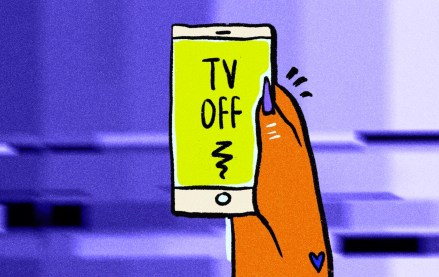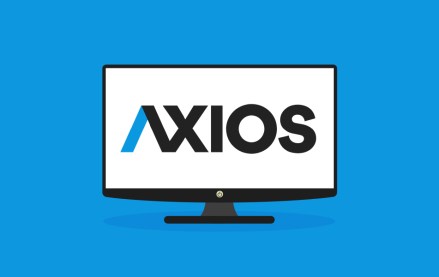BuzzFeed’s tweaked studio strategy showcases challenges for publisher studio units

This article is part of the Digiday Video Briefing, which features must-reads, confessionals and key market stats. To receive the Digiday Video Briefing, please subscribe.
It wasn’t Jonah Peretti admitting defeat, but it sure signaled a different emphasis.
Last week, BuzzFeed named Cindy Vanegas-Gesaule, head of programming for BuzzFeed News, as the new head of its BuzzFeed Studios unit, which produces shows for external platforms and buyers ranging from Facebook to cable TV. In announcing the news to staff, BuzzFeed CEO Jonah Peretti also signaled a revised direction for the BuzzFeed Studios group.
“As we look ahead, our strategy with Studios will mirror what we’re doing throughout the larger organization: we’re focusing on what we do best,” Peretti wrote. “That means strengthening our focus on developing innovative content for platforms. Making TV is great, but we’re even more interested in figuring out the future of TV.”
This doesn’t mean BuzzFeed will stop doing traditional movies and TV shows, said a source at the company. The company still has a film in development with Warner Bros. stemming from its once-viral “Brother Orange” story; and it has two other film deals with New Line Cinema and George Clooney’s Smokehouse Pictures based on BuzzFeed articles.
But when Peretti, in the memo, says “it’s time to pioneer new models for a post-TV world,” it’s clear where he thinks BuzzFeed’s strengths are. With shows such as “AM to DM” on Twitter and “Worth It” on YouTube, BuzzFeed has been building out a platform programming business that can sustainably deliver revenue for the company. BuzzFeed plans to produce 20 digital shows this year, including upcoming projects with Facebook and Snap. When it comes to film and TV projects, the publisher will seek to work with a traditional Hollywood partner, according to The Hollywood Reporter.
BuzzFeed’s decision to prioritize TV-like programming for digital platforms comes at a time when it’s becoming harder and harder for entertainment studios to operate the way they used to. There has always been the threat of lost revenue from show cancellations, of course — and it’s something which both BuzzFeed and Vice Media have experienced this year with the axing of “Follow This” by Netflix and “Vice News Tonight” by HBO. But most studios and producers are increasingly facing a future where revenue will be tied to production fees (margins) versus the ability to develop franchises that can deliver long-term revenue.
For years, BuzzFeed has been investing in building out its studio division, seeing a path to new revenue by selling TV shows and movies to outside buyers. But the studio business presents a thicket of challenges, from show cancellations to business models that make producers increasingly rely on thin production margins. This hasn’t stopped BuzzFeed from producing for film and TV, but the publisher has been placing a greater emphasis on creating profitable digital programming that it has greater control over. And as other publishers look to build their studio businesses, they will likely have to figure the answer to a key question: What kind of studio do you want to be?
We have covered the issue of “intellectual property” ownership in the past: Netflix is increasingly moving the production of its own original movies and TV shows in-house, and when the streaming giant does buy from outside producers, the company prioritizes long-term, globally exclusive licenses. New global streaming services from Disney, WarnerMedia and others will still buy projects from external producers, but will likely seek longer terms as they, too, try to add subscribers.
Is there enough business value in being a production company for hire? And what sort of selling volume would be required for that to become a meaningful contributor to the overall business?
Another prominent digital media company made $10 million from studios-related revenue in the past year, according to a source. While the exec at this company declined to specify how that translated into profits, a typical 10% or 15% margin would mean profits were in the low millions.
There might be additional profits if the producer is able to amortize costs or is able to attach additional fees, said a longtime entertainment producer. “The bigger win is if you’re retaining and selling the rights,” said the producer.
IP ownership is not necessarily the end-all, be-all of building a successful studio business. In a previous Digiday interview, Vox Media’s head of entertainment Chad Mumm called it a “red herring,” arguing that Vox Media has slowly and steadily built a studio business by focusing on landing more deals, which create a flywheel toward more deals.
But the question of IP does tie back to what kind of studio a publisher wants to build. For BuzzFeed, the answer is in spending more time on platform programming that it can own. The company has determined that there is greater long-term value in building franchises that way — some of which the publisher could ostensibly license to outside buyers down the road in the way that Complex Networks has done with its digital programming. And if it’s able to land some movies or TV shows along the way, that’s a nice cherry on top.
Vice Media, meanwhile, reportedly has 60 film and TV projects in some stage of development. The company sold “The Report,” a feature film starring Adam Driver, to Amazon for $14 million. That doesn’t make the loss of “Vice News Tonight” hurt any less, but Vice Media certainly has the volume to manage the loss until it’s able to find another home for the news show.
There is not necessarily one correct approach for publishers when it comes to studio sales. But it’s clear that the road to film and TV is anything but straight and smooth.
More in Future of TV

Future of TV Briefing: Media Rating Council identifies ‘the problem of our time’ for measurement
This week’s Future of TV Briefing looks at how the industry’s measurement arbiter is looking at ensuring measurement systems are able to reliably identify audiences across channels in a privacy-compliant manner.

Future of TV Briefing: Making sense of the TV industry’s latest measurement moves
This week’s Future of TV Briefing looks at the recent developments in the TV measurement market on the eve of this year’s upfront negotiations.

Future of TV Briefing: How Axios Entertainment is looking to expand its original programming business
This week’s Future of TV Briefing looks at how Axios’s entertainment division has its eyes on moving physical production in-house and getting into scripted programming.





